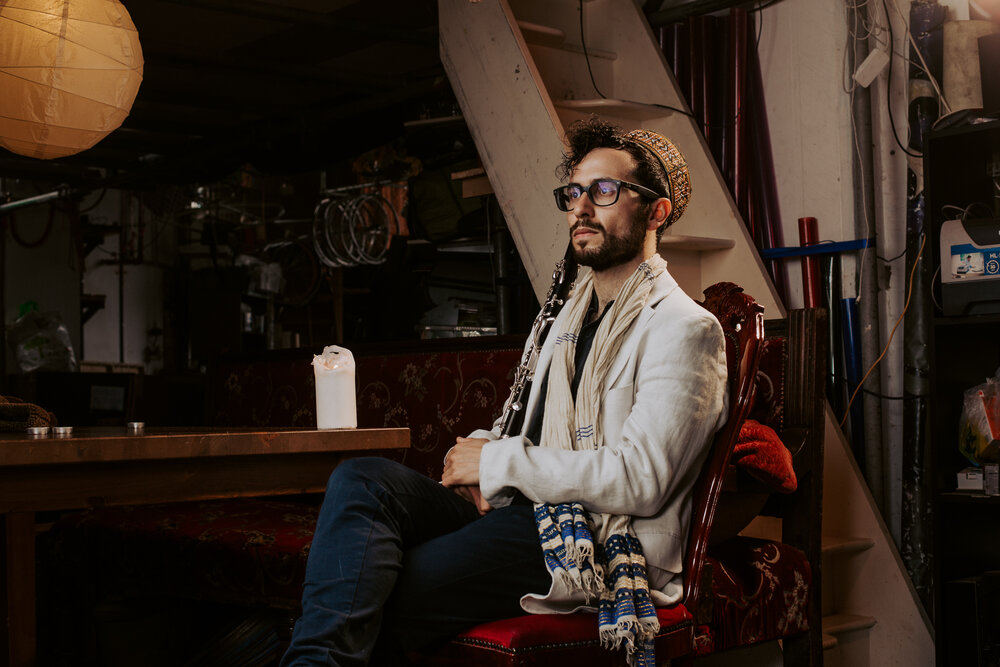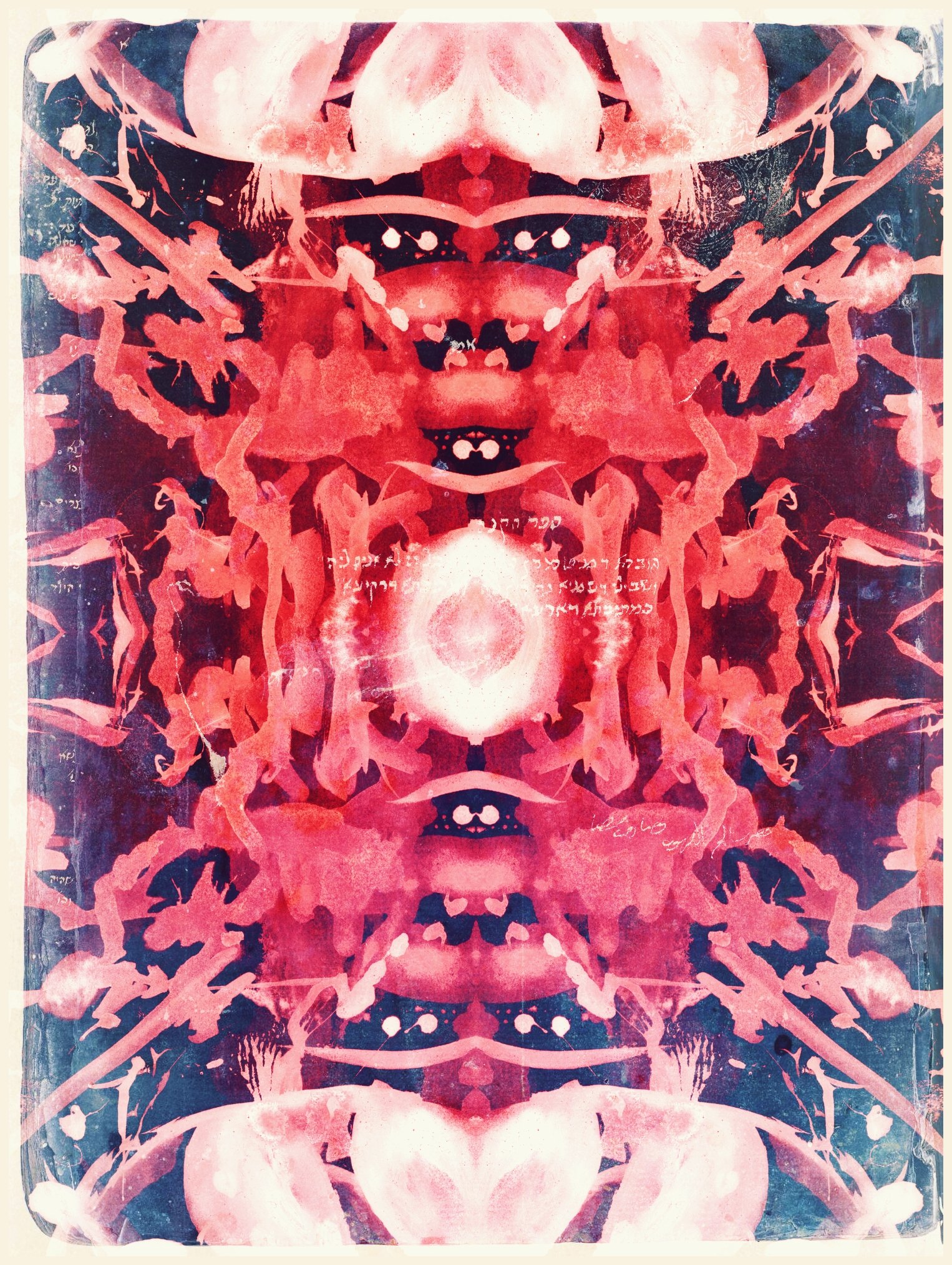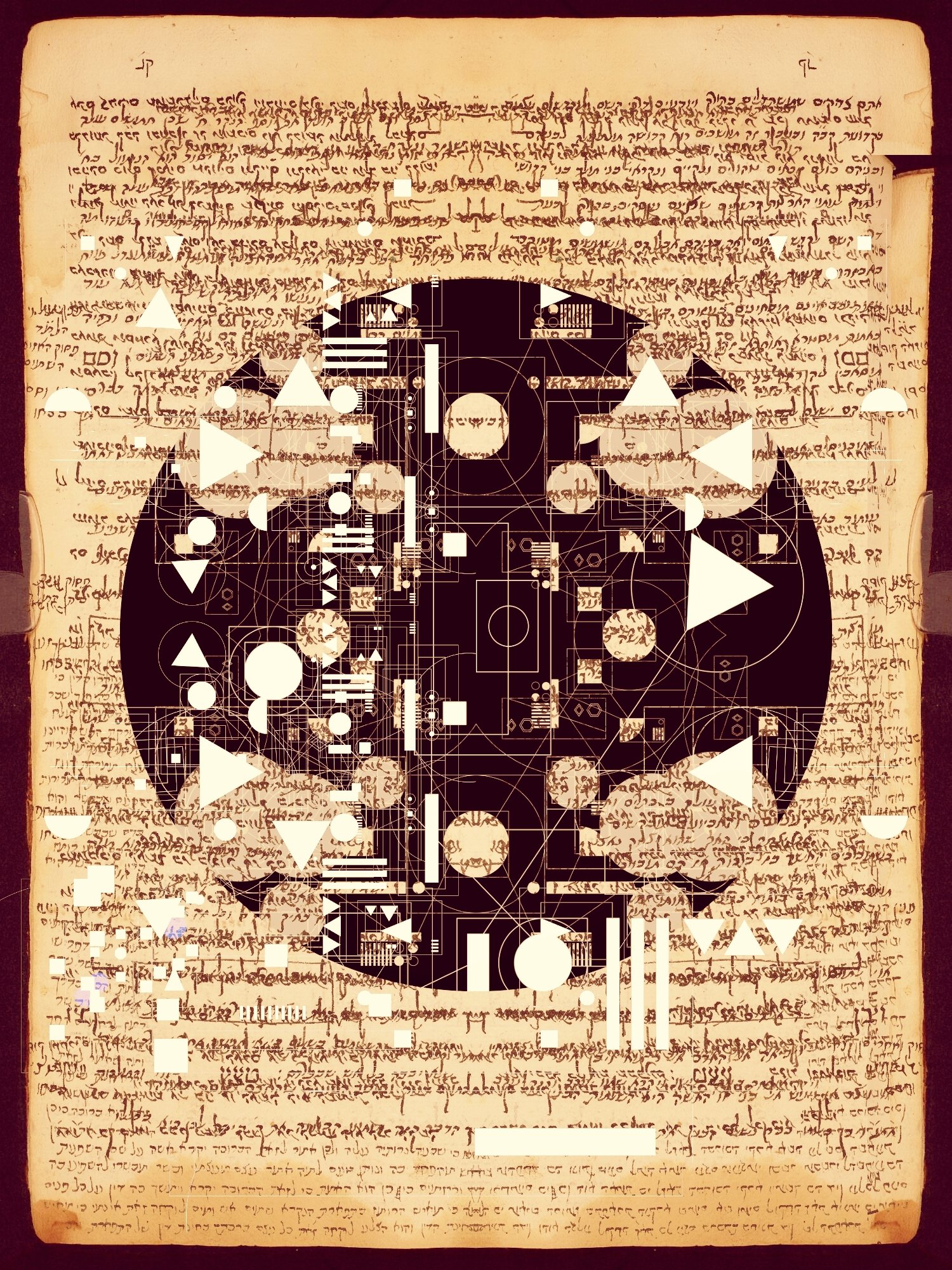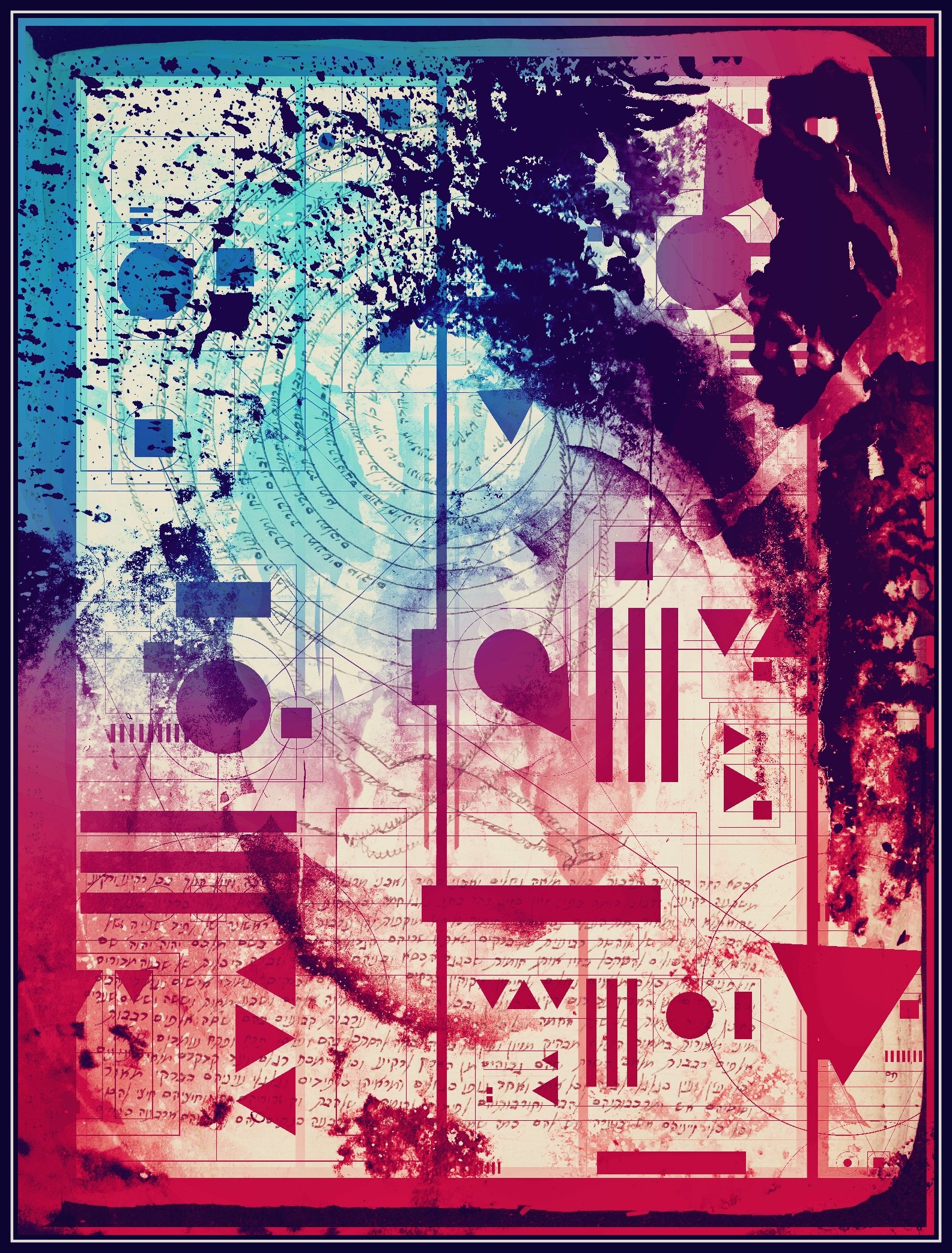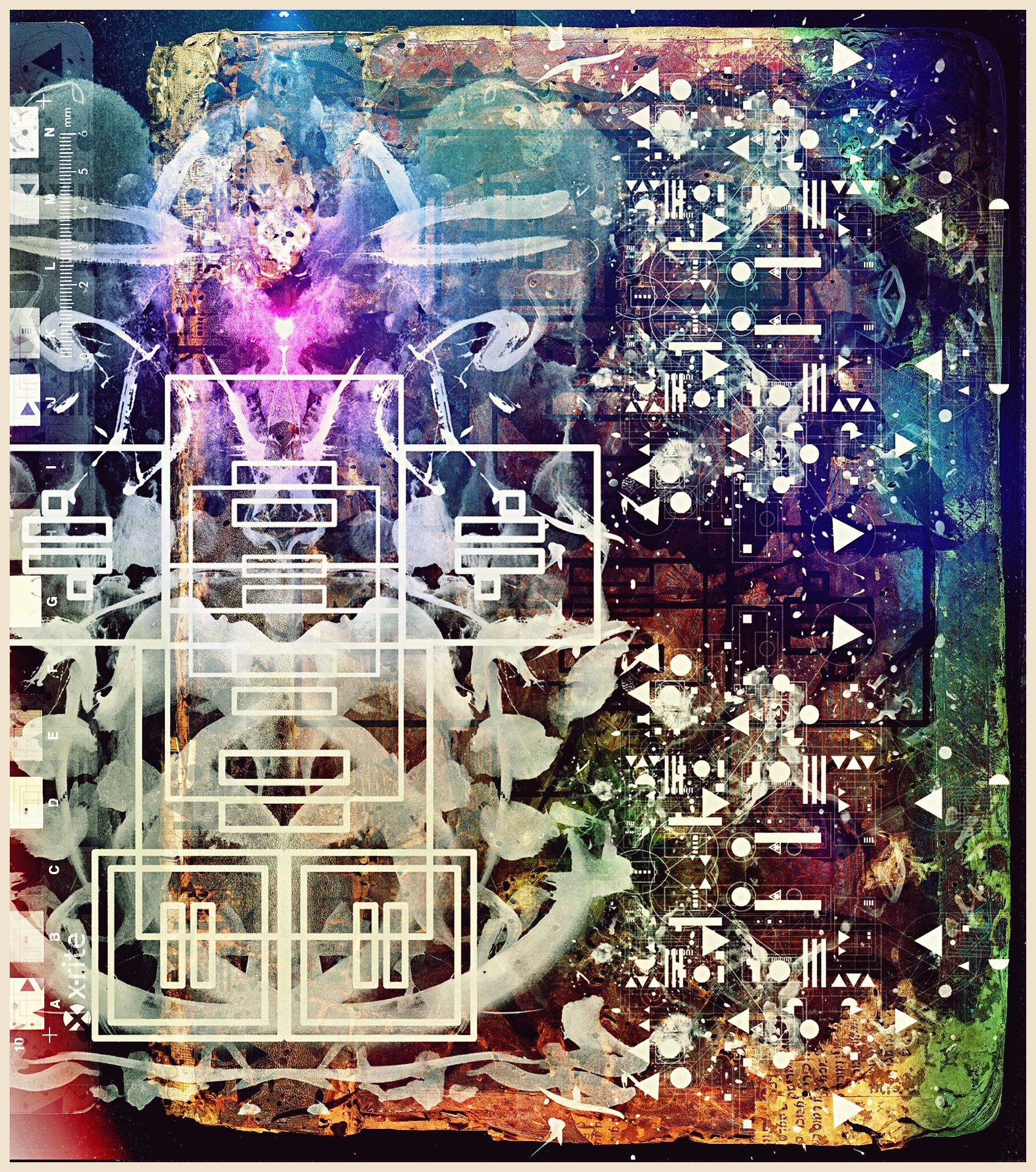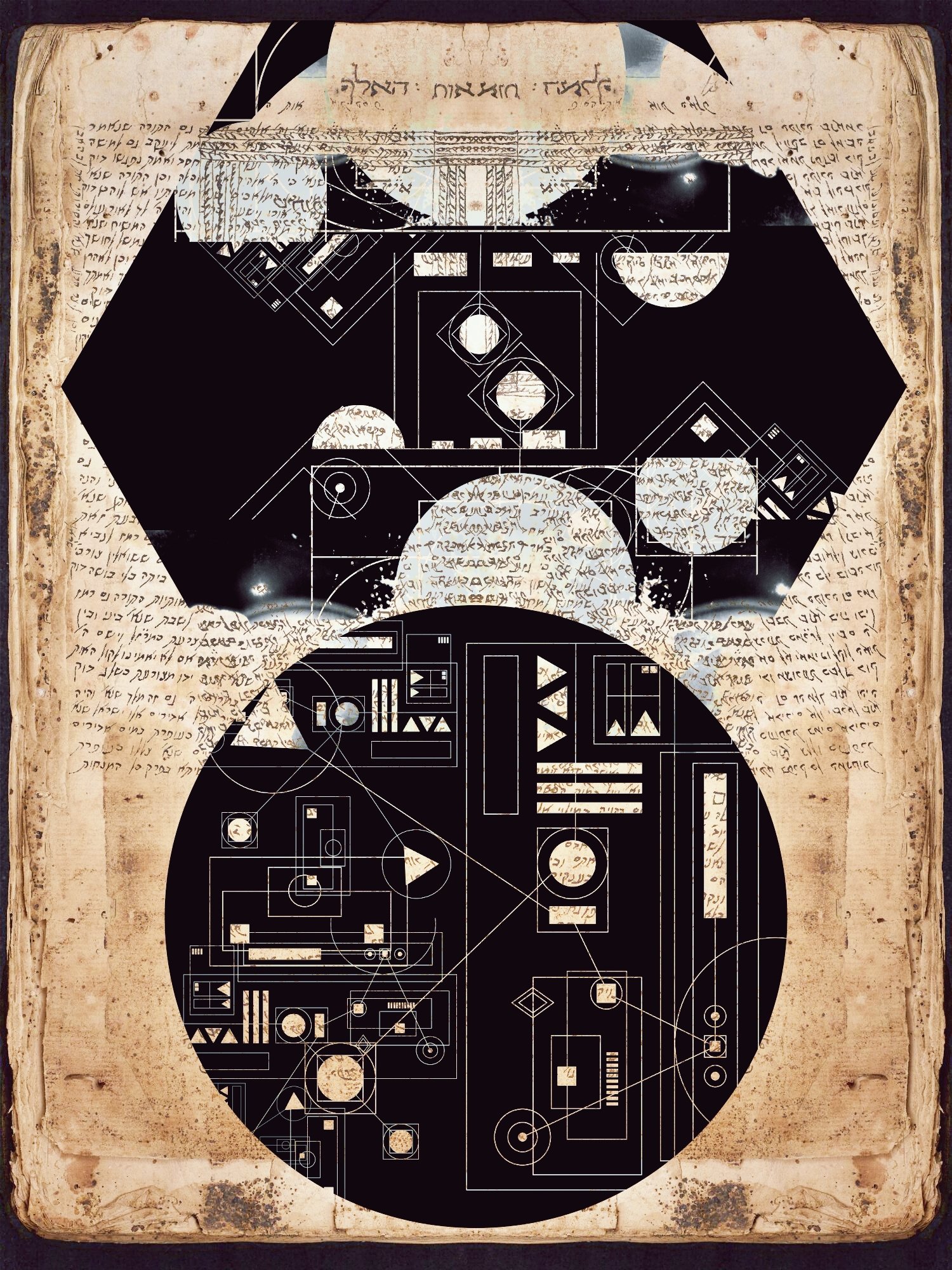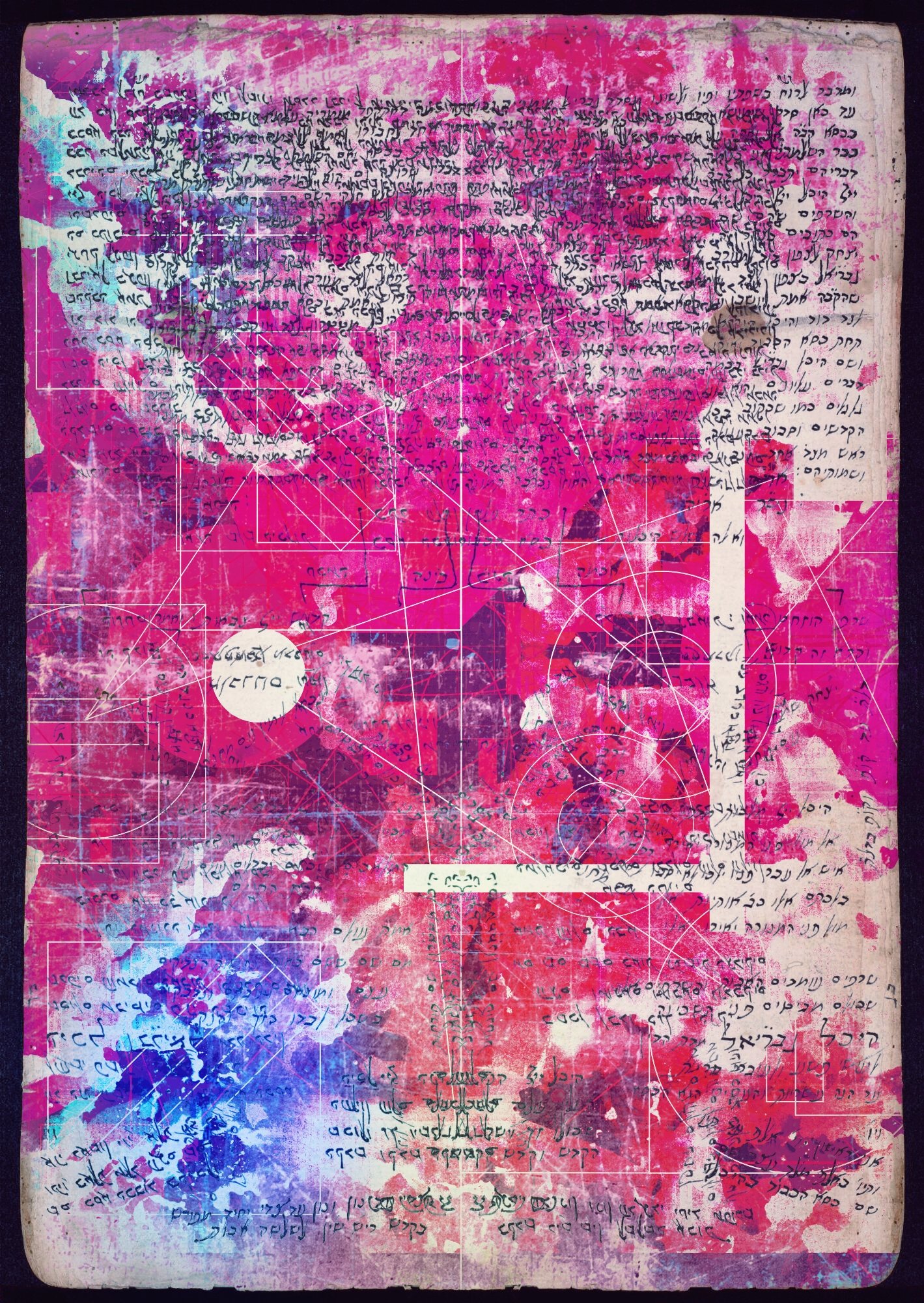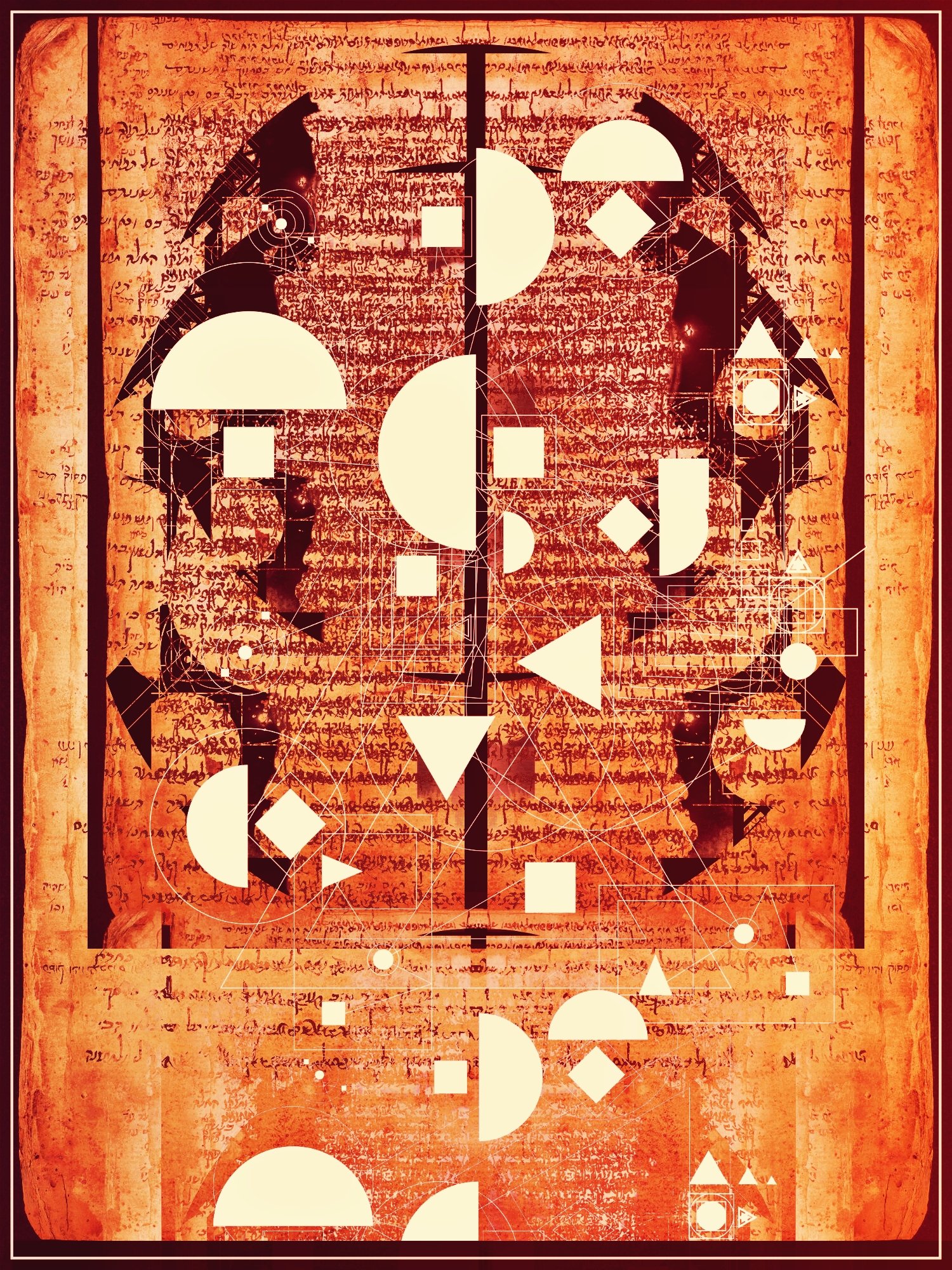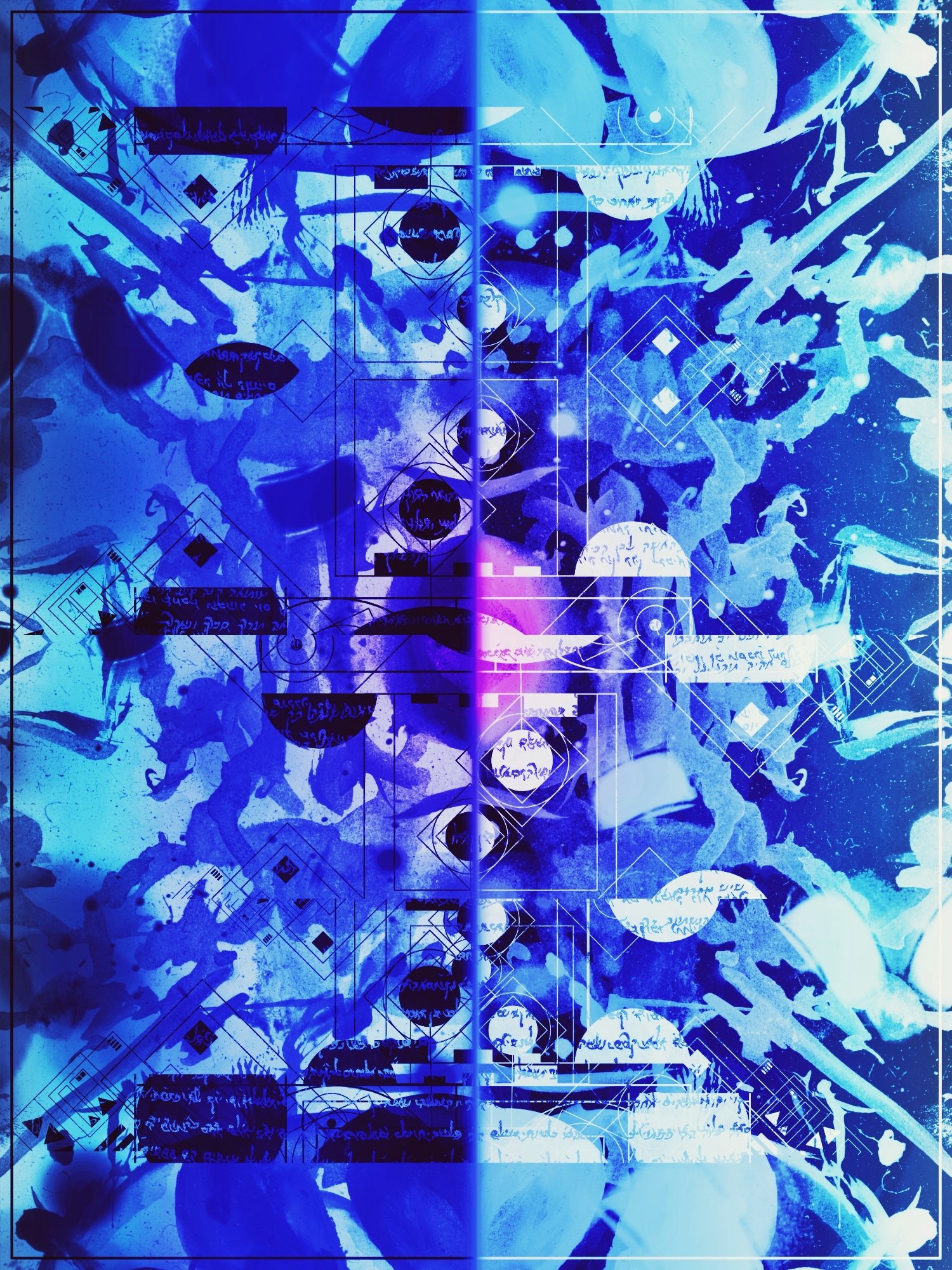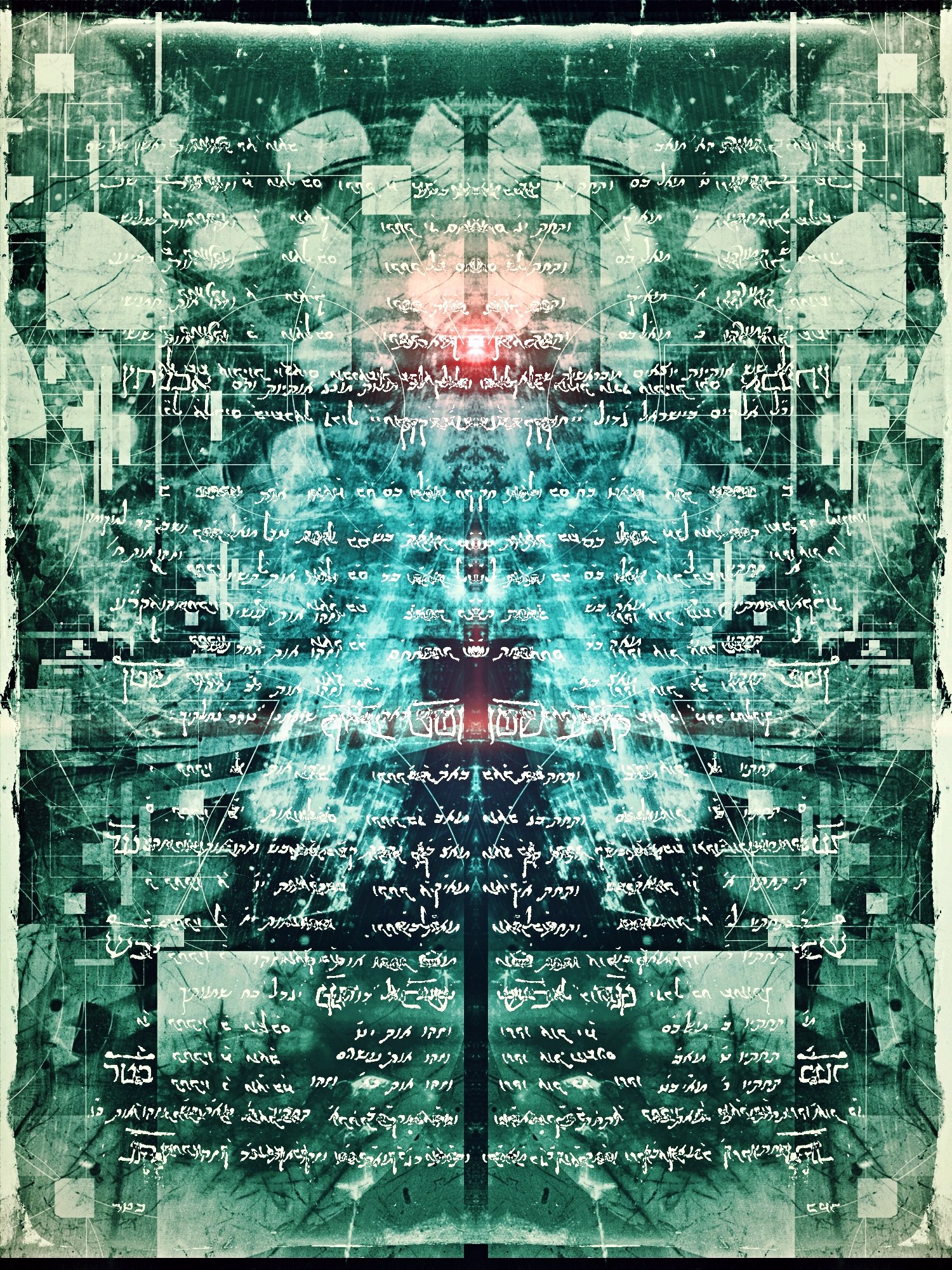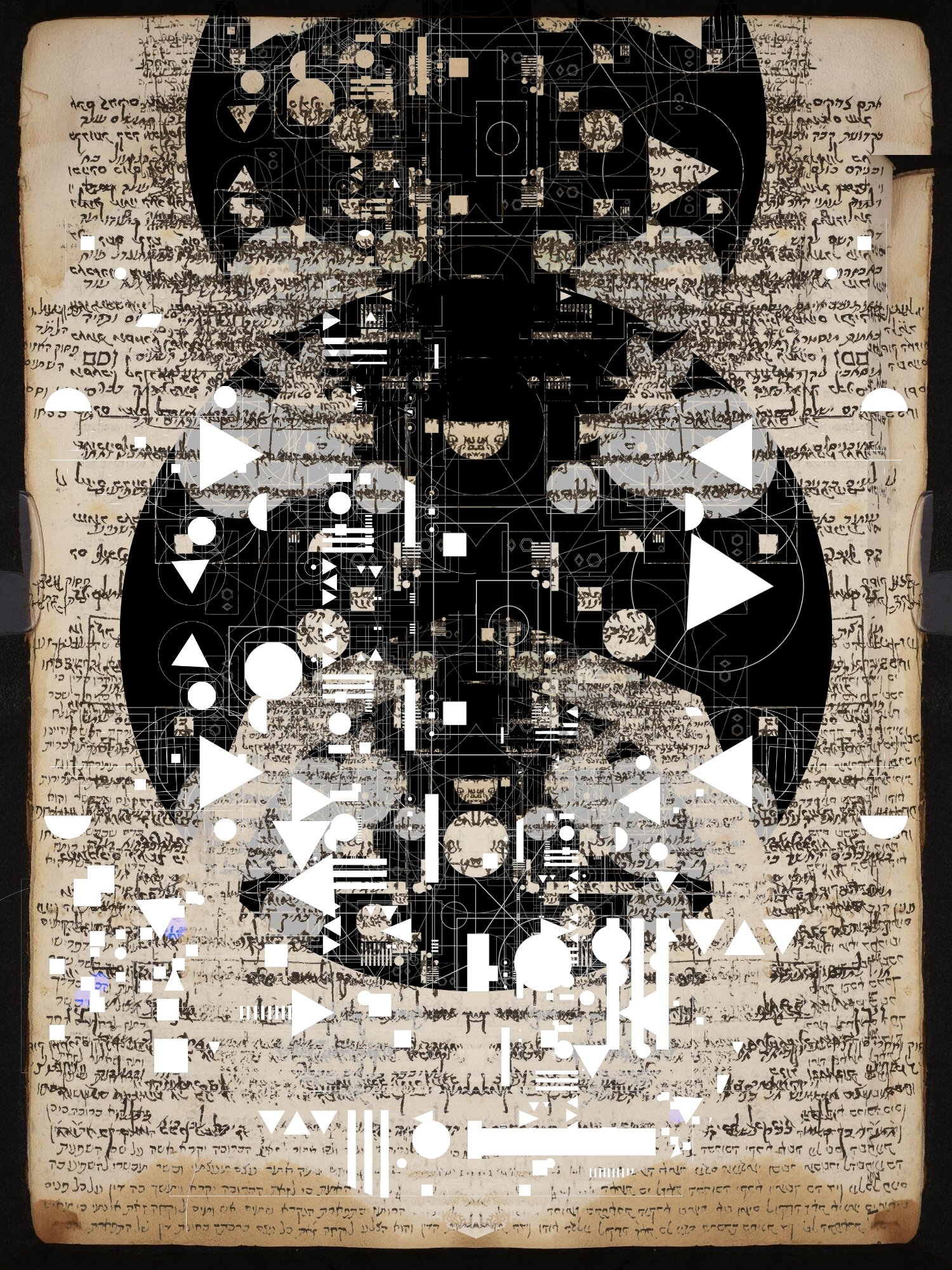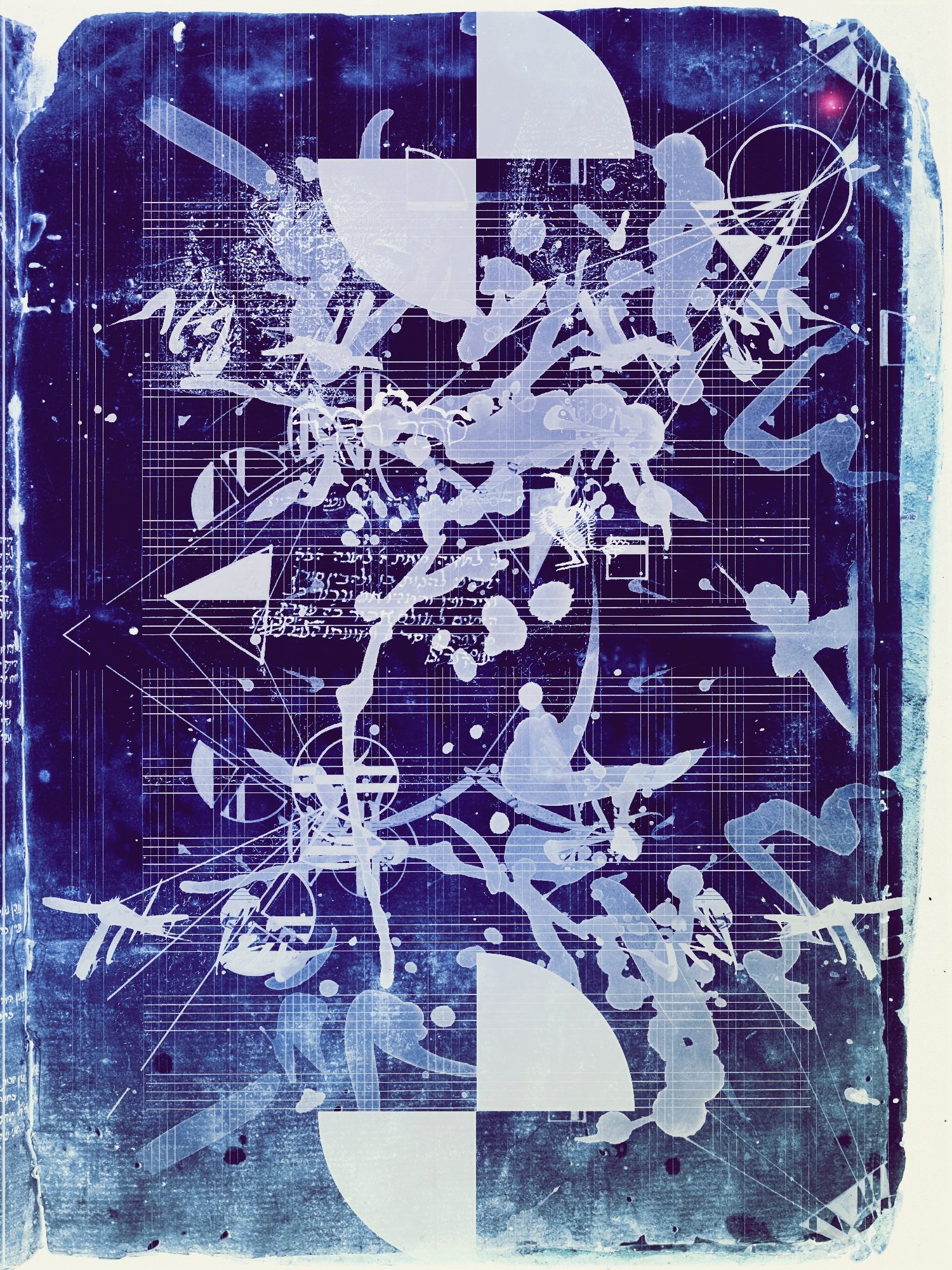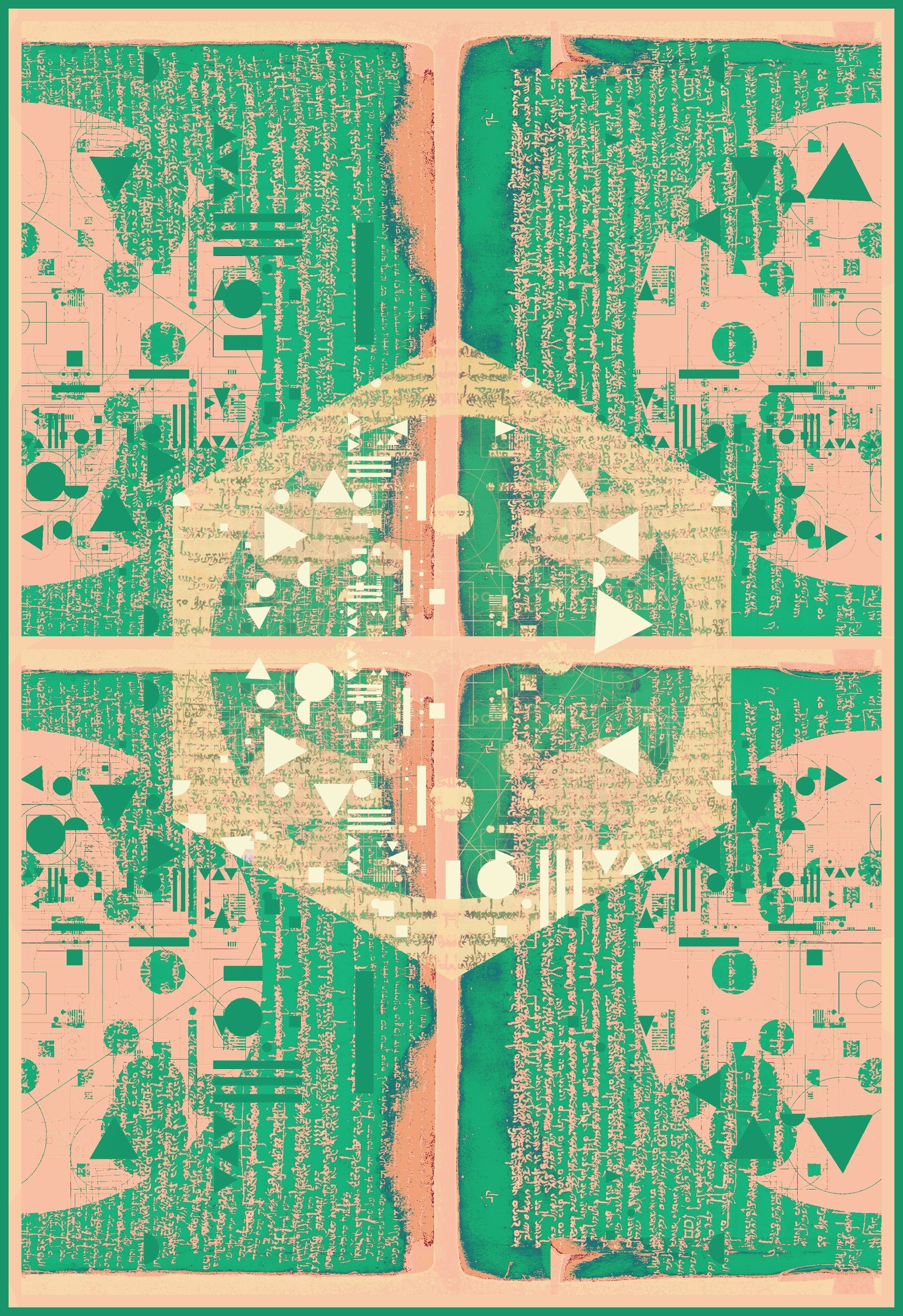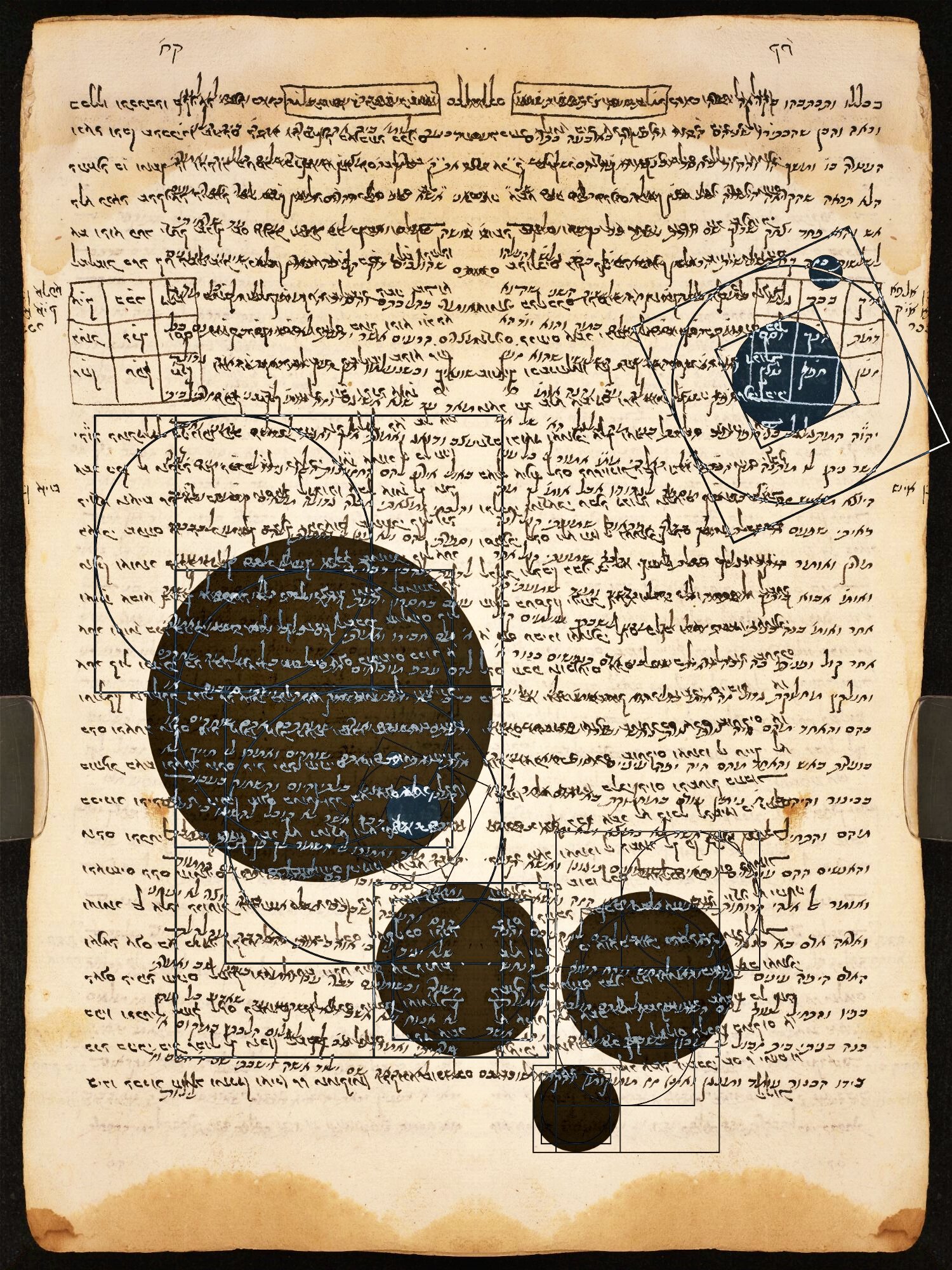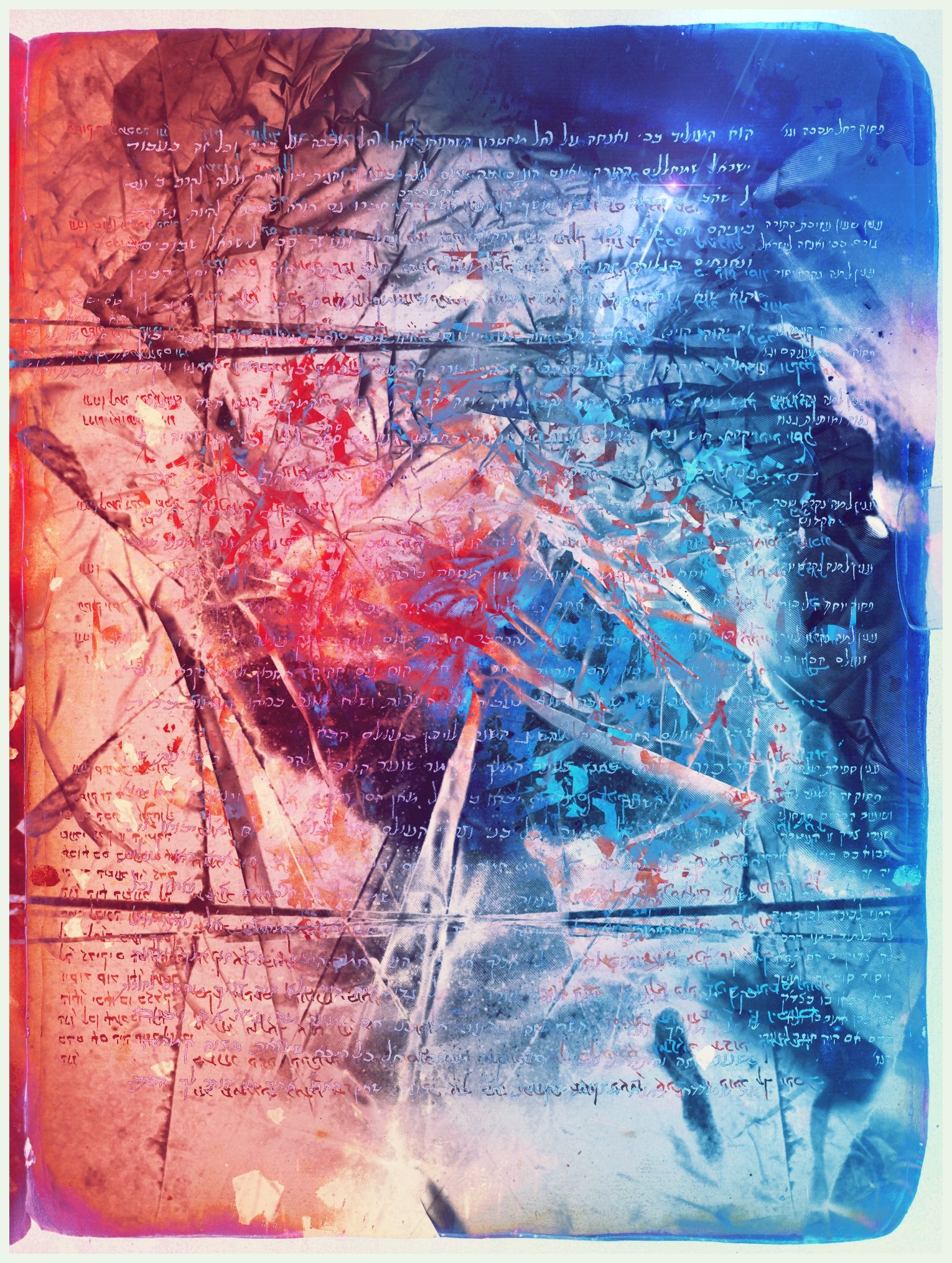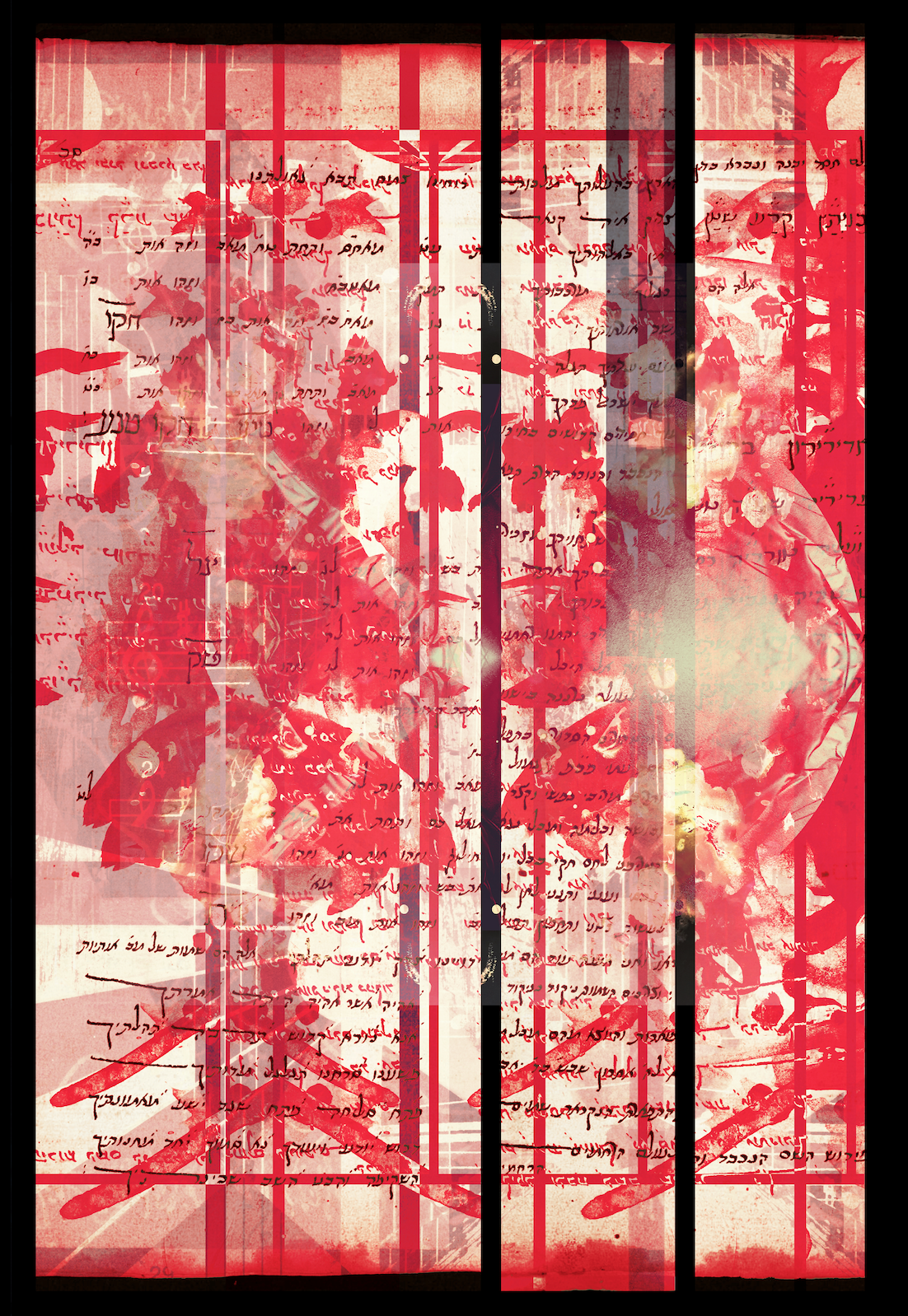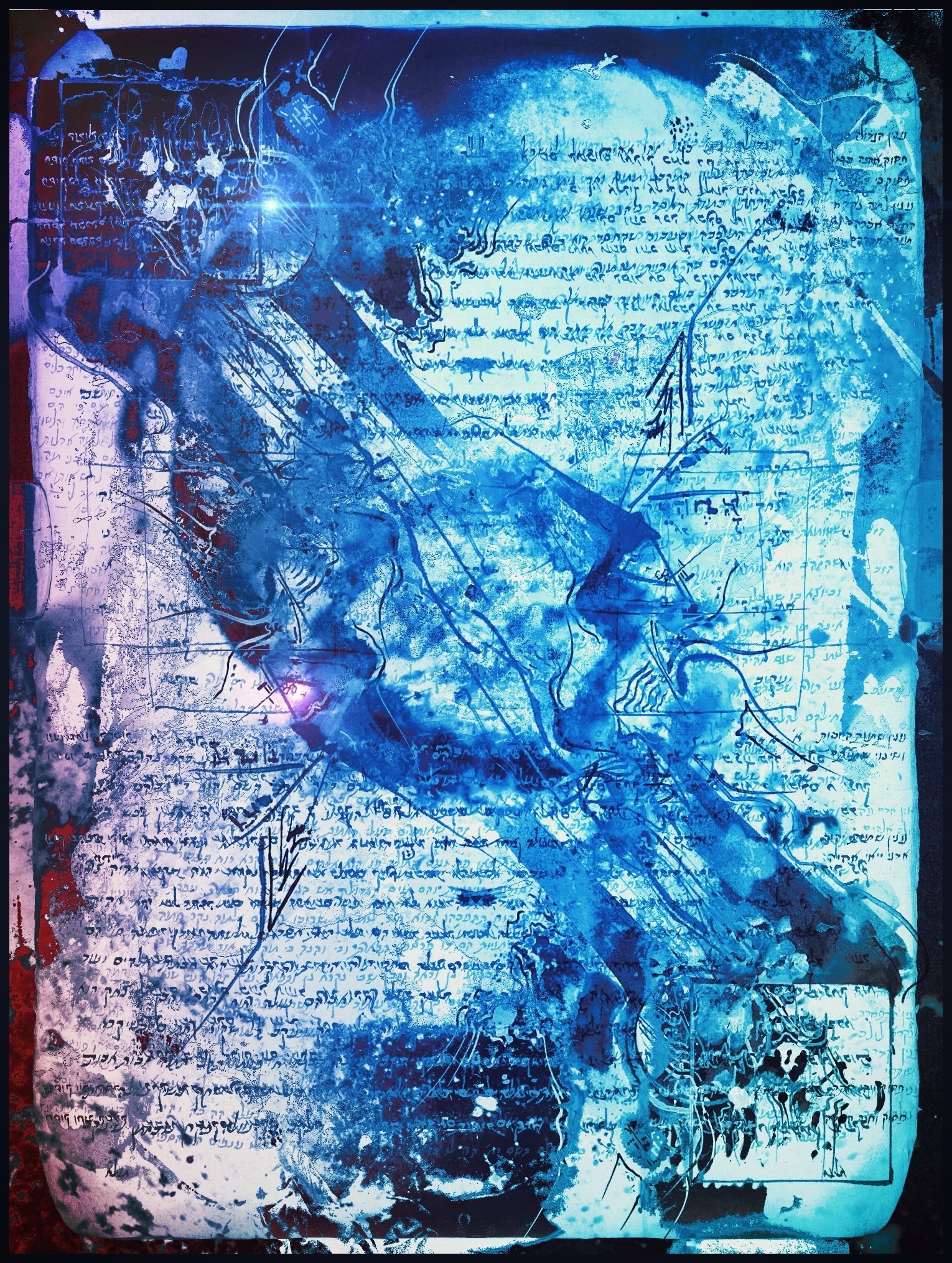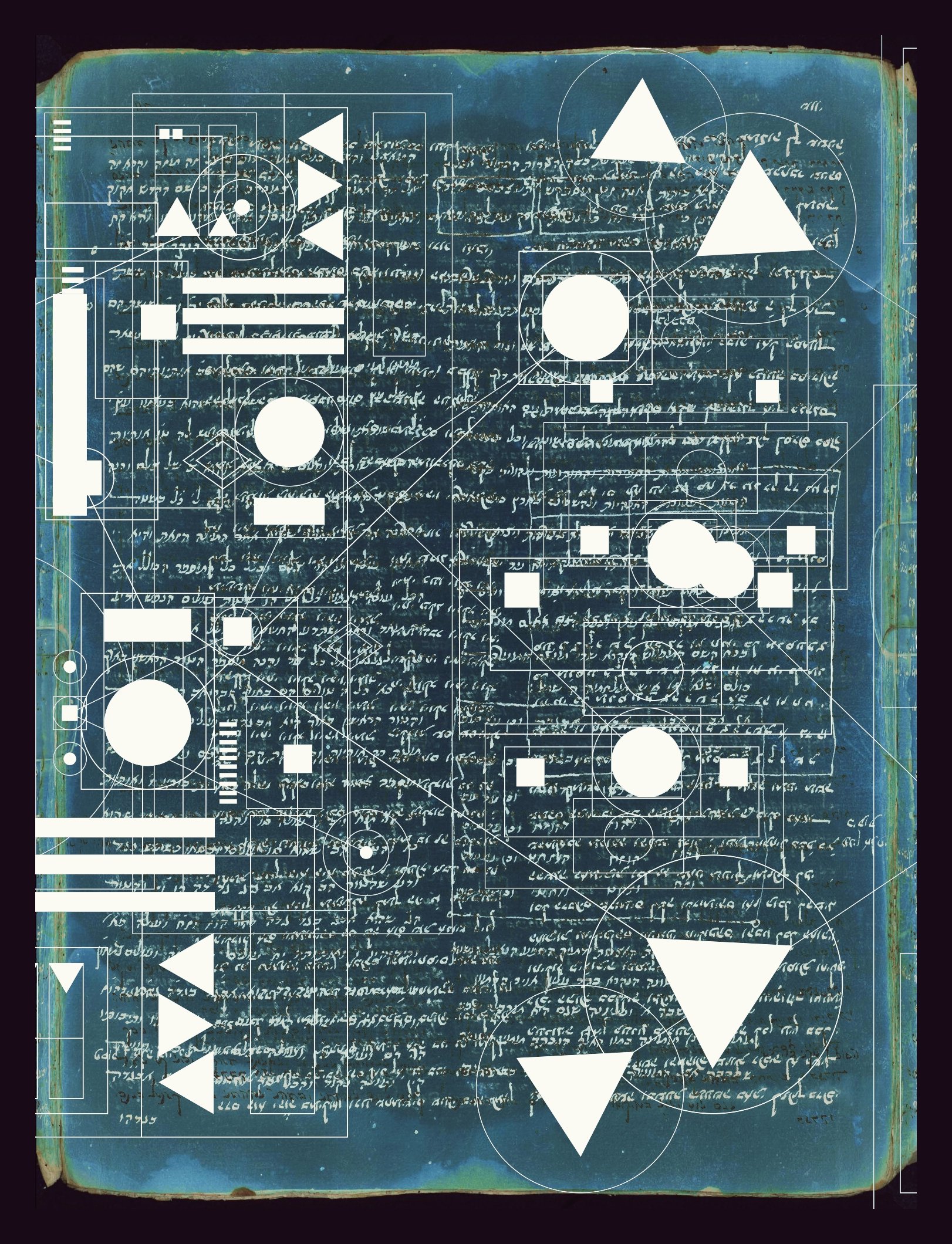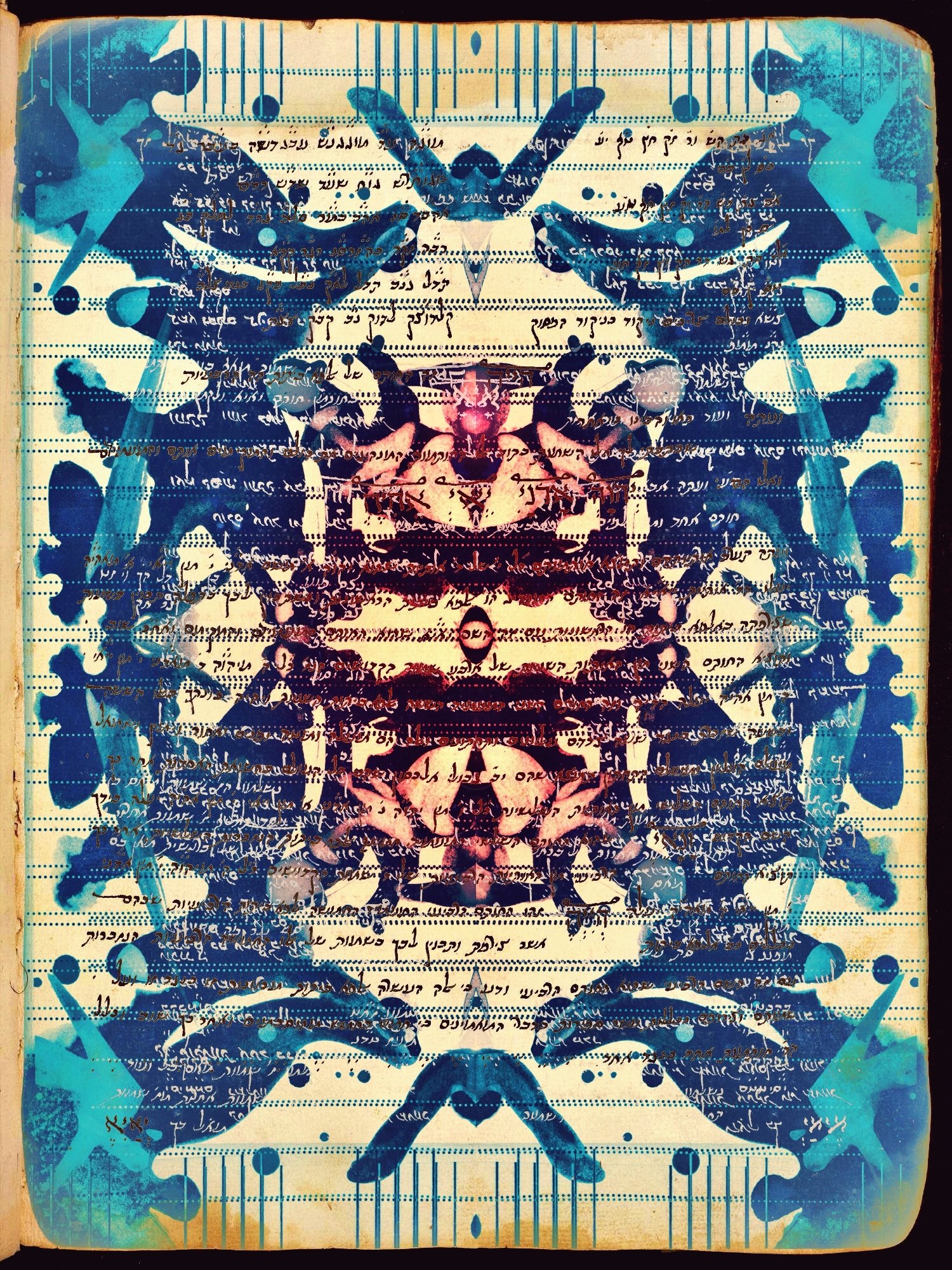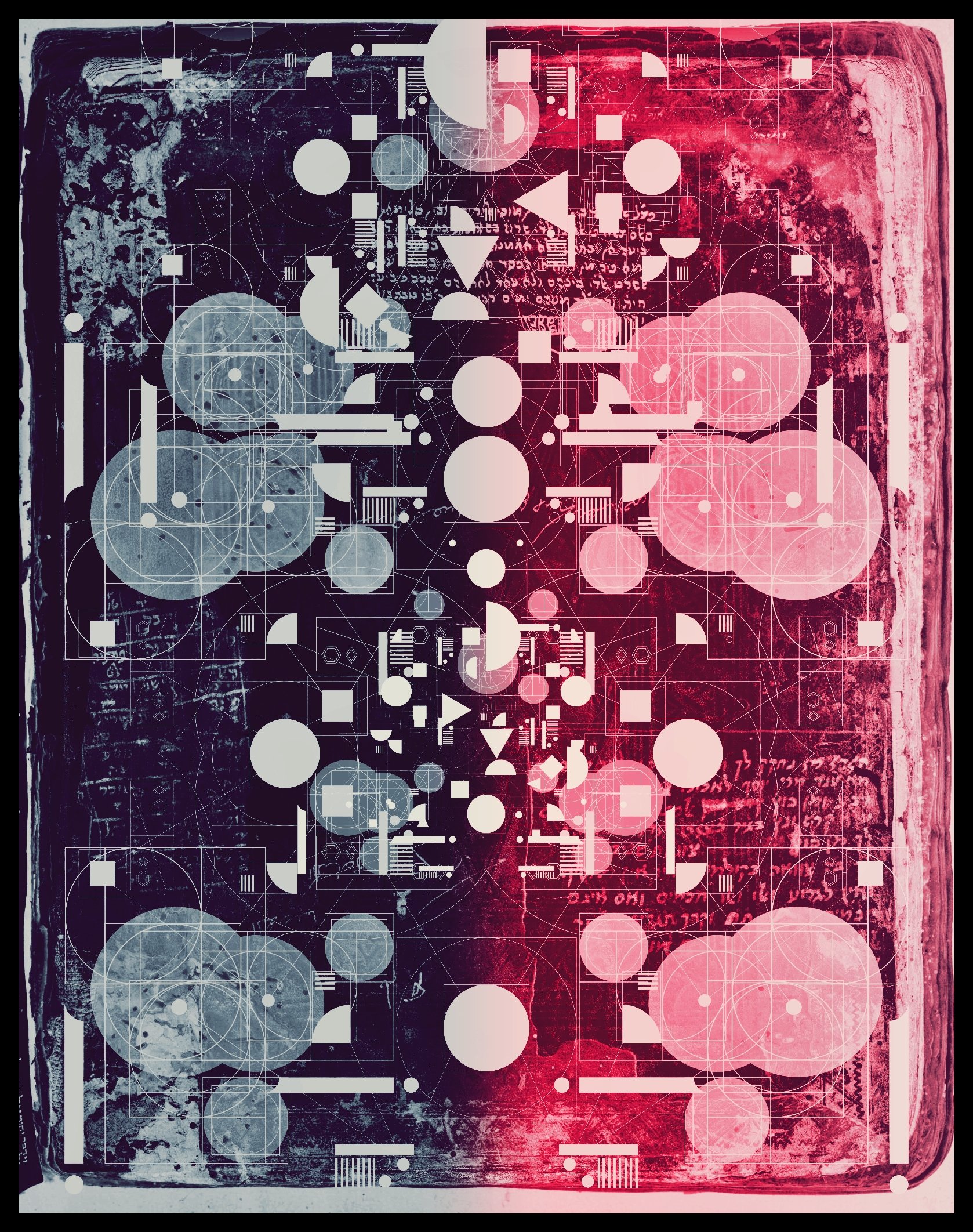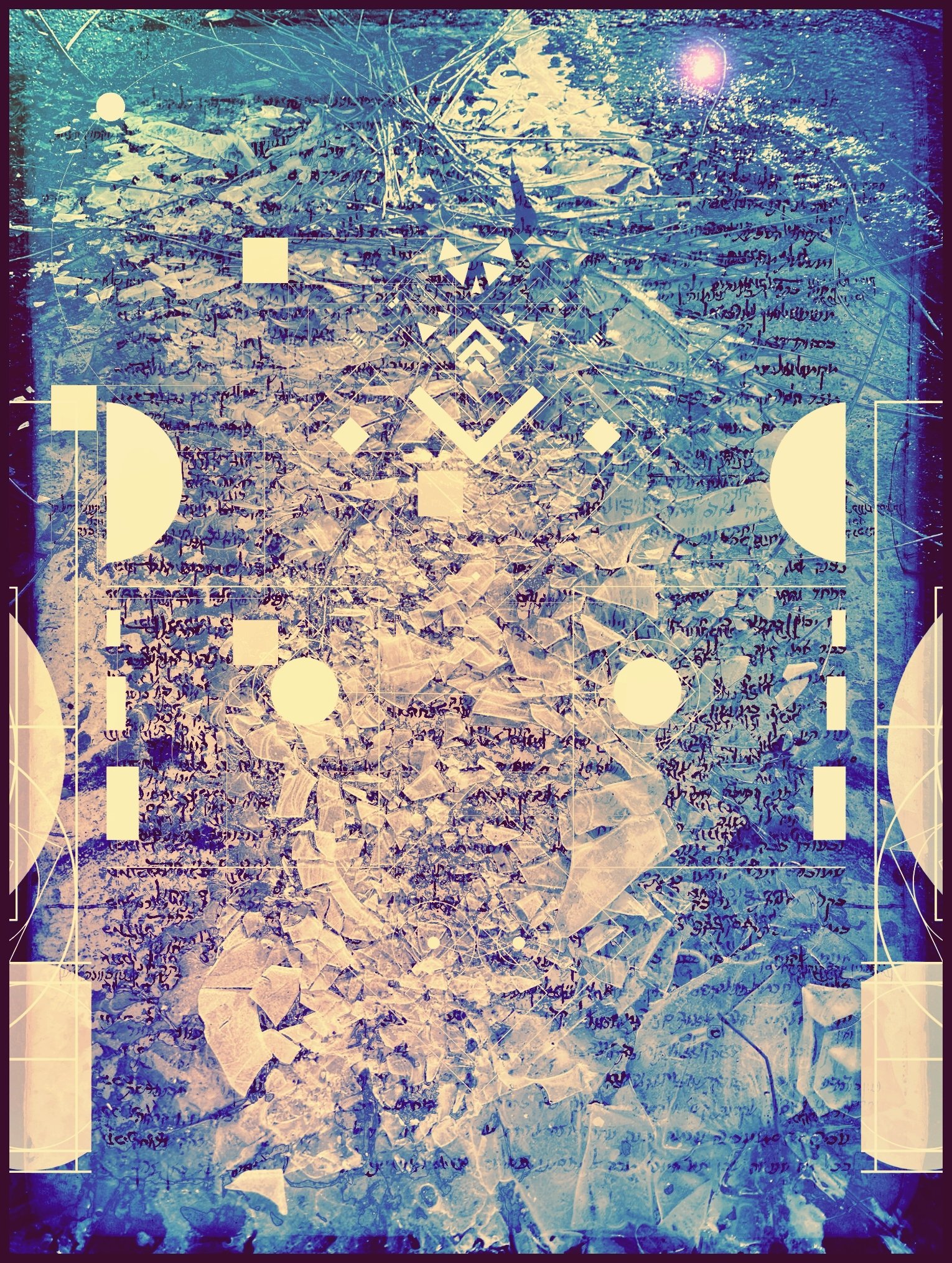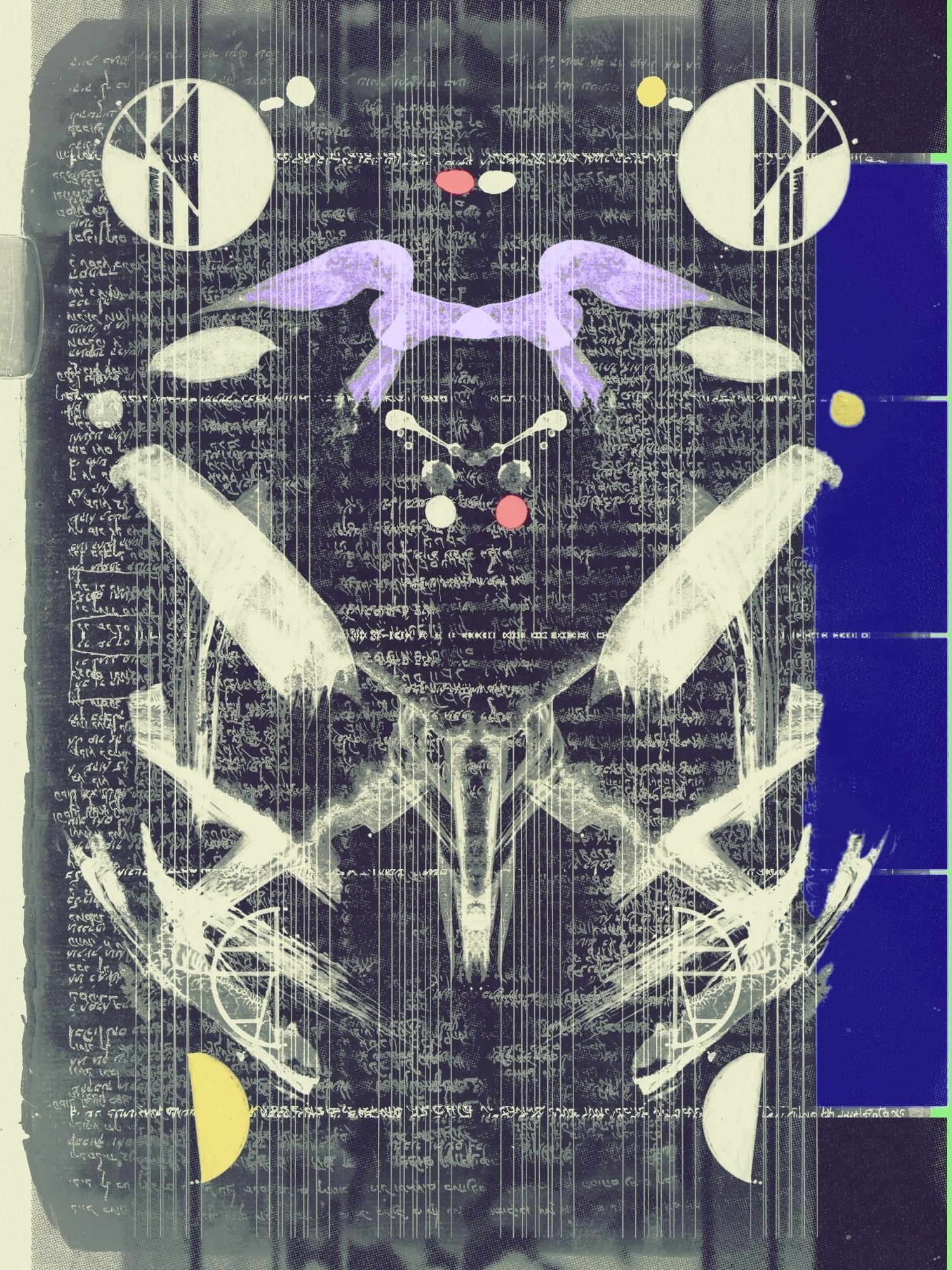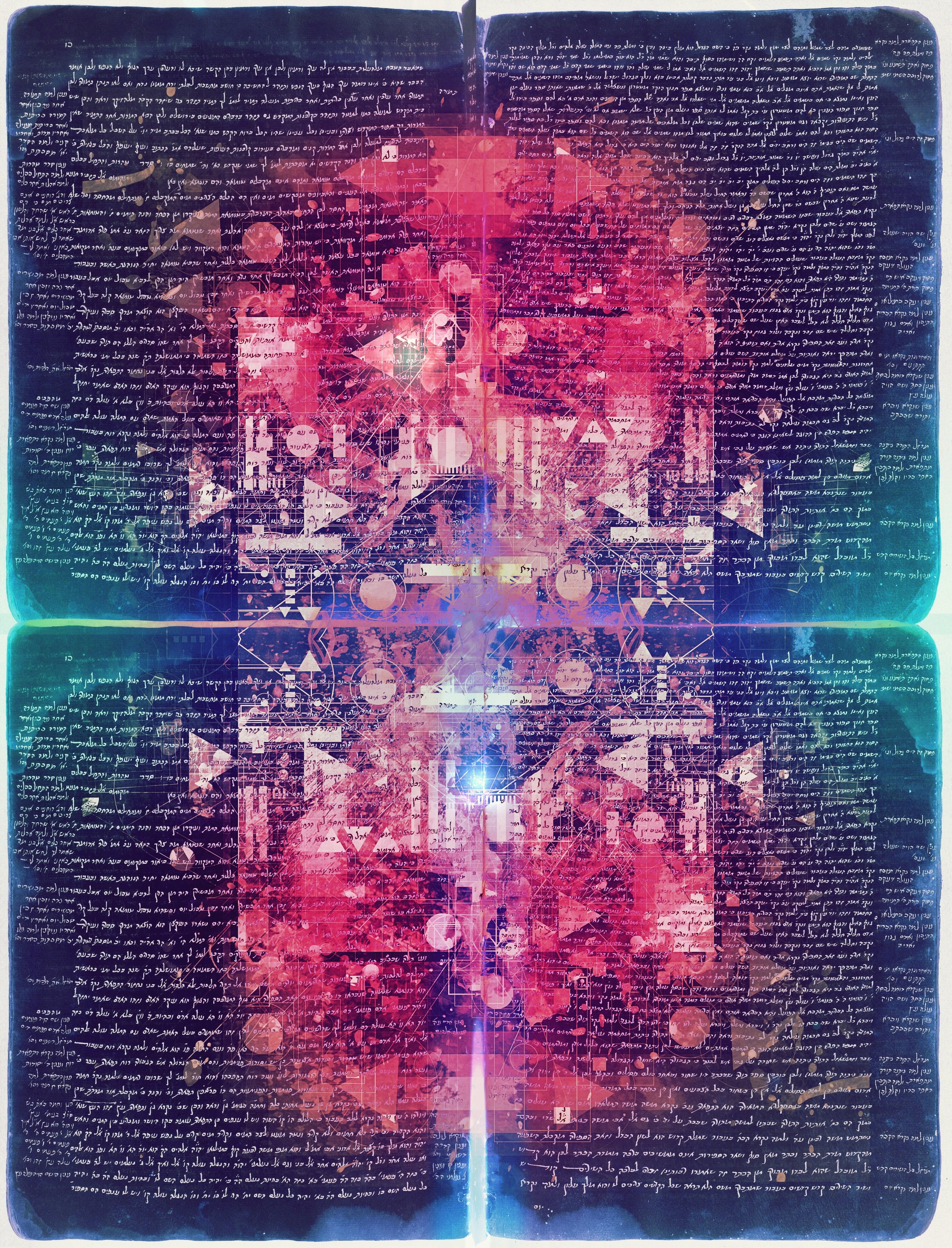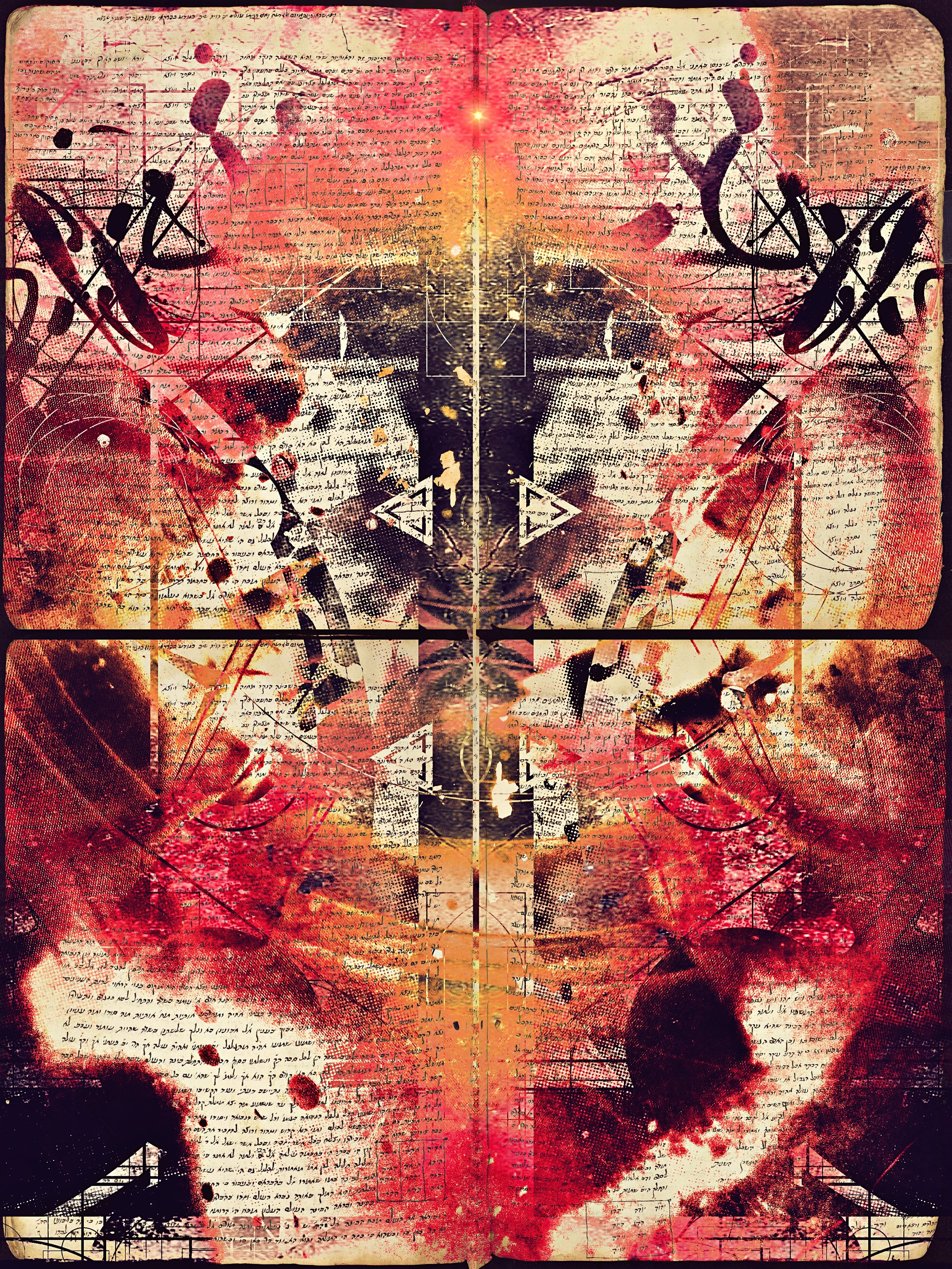As of late 2021 I've been commissioned to write pieces for electronics, clarinet, and voice, by The Centre for Jewish Studies at The University of Manchester as part of their '50 Jewish Objects' series. I'll be responding to their copy of the Sefer ha-Peli'ah, The Book of Wonder, and also making 'Graphic Scores' that combine pages from the book with my own ink works, alongside some other outputs.
I’ll be posting a sort of blog here that tracks my process, and examining how engaging with historical texts and material shapes artistic practice in the present.
I’m principally imagining the project as a futurist one, perhaps if I was more imaginative (or perhaps pretentious), I’d write a Judeo-Futurist manifesto to accompany these works. There is certainly a history to build on, not only of Jews radically engaging with the very nature of the future, such as Isaac Asimov, but also those weaving a very Jewish path forward, such as Marge Piercy; writers and artists imagining a world that blends both the ancient and the yet to come, a world blessed with robots and golems and one that offers imaginative solutions and not merely old dangers. In fact, images of the future are indeed ancient, and to our eyes prophetic visions, such as those of Ezequiel, can summon not only the sacred, but of monolithic holy machines of the future.
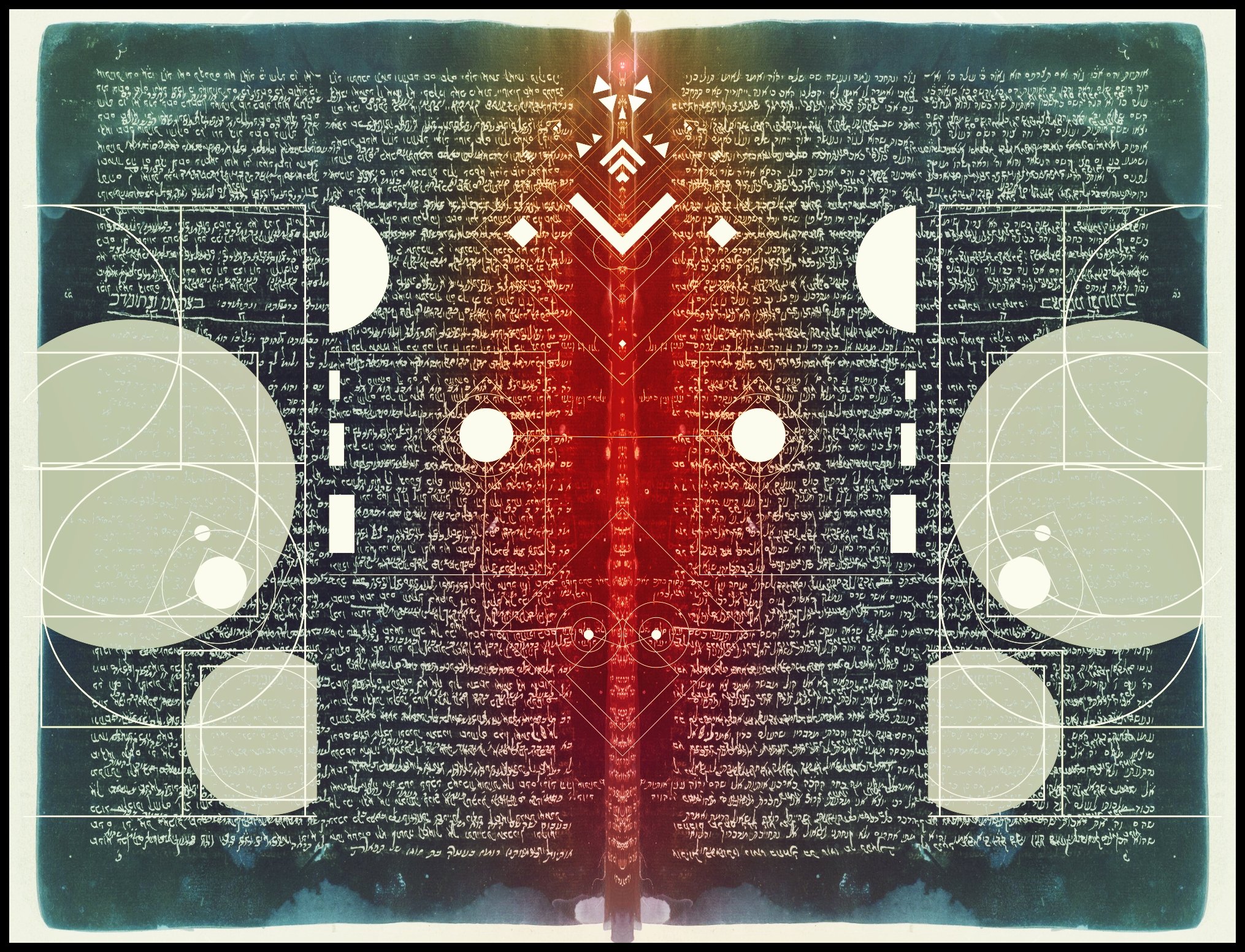
Many musicians have also explored this fertile soil, particularly those at Tzadik such as Frank London and John Zorn, although as many of these are from a generation or two before me, their visions of the future are perhaps rooted in a different moment, centred around crucial musical events such as the experimental Downtown scene of the 1960s and ‘The New Thing’.
As someone as influenced by Brandwein, Solinski, Steiner, Tarras, and Titunshnayder, as by Murcof, Flying Lotus, Arve Henriksen, Mileece, Taylor Deupree, Burial, Floating Points, and William Basinski, I imagine a future for Jewish music and culture in which Jewish musicians, computers and musical tools with a radical range of different affordances work together in new music, which is profoundly, radically, and unashamedly Jewish, at once both original and authentic (damn, this sounds exactly like the sort of pretentious writing I hoped I’d avoid).
For this commission I’m embracing a wide range of electronic sounds with an Ashkenazi sensibility, infused with what I imagine is the adventurous spirit of those Kabbalists who were working on the Book of Wonder.
In this first piece I explore a sound world haunted by both the echoes of both Cantorial voices and the sounds of European Dubtechno masters such as Rhythm and Sound, to conjure scenes similar to those writers who write Jewish futures that are yet to come, populated by bodies moving in both devotion and dance.
The second piece seeks to capture the scale of some of the questions that the readers of the Book of Wonder grappled with, combining clarinet melodies, brutal beats, and generative combinations of Hebrew letters to invoke the ways in which Kabbalists used different permutations of letters to summon the power of the divine names.
This third piece examines questions of authorship and pseudepigraphy, centred around the influential Kabbalistic precursor to the Book of Wonder, the Zohar, and whether its creator was the 13th century figure Moses de Leon or Shimon bar Yochai (The Rashbi) a sage from the second century. Combining atmospheric synth lines and poetry (which I’ve included below), this composition explores whether the Zohar and other Kabbalistic texts are works of inspired human creation or miraculous divine intervention.
When he returned to the book that night the words were gone
a faint sound upon the air
not of music, or speech, but perhaps just an intake of breath
drawing them inwards and out from the page and into the world
nothing remained of what he had written
perhaps his wisdom did not sink its roots as deeply into Leon’s soil as he had imagined
for this had been intended to be a great work,
one to be poured over for many years,
fragments of Rashbi flowering into new branches of gnosis
consonants forming a flowing exegesis commanding the reader’s attention like hypnosis
but now who will know this, only scratches on the page sit where once ink had quickened the senses.
He dropped his head into his hands, for naught, perhaps not even prayer could mend this,
all those moments of creation blotted out in an instant.
Then, a sound, initially almost beyond the edge of perception like the last rays of the sun on the lip of the world,
unfurling, peeling back layers of tone, a chime in the darkness not heard but felt in his bones.
Shimmering like a bell as it passed through him as a shiver, dragging his eyes once again to the page,
and there, where letters had marched together lockstep, an inky channel growing from the spine now flamed,
a torrent, mixed with his tears spreading liquid wings across pages once tamed
wild but for an instant and then slowing, now seeping in rivulets, glistening softly like oil on water becalmed.
And as Moses watched, tributaries formed, delicately meandering across the page
deltas and floodplains narrowing to form slender letters, at first a crawl but now speeding across the paper like an arrow.
Lifting the pages he sees black veins and capillaries sinking into every one, even those whose shores he had been yet to cast upon.
Words, phrases, sentences, whole ideas forming, thoughts he’d once tried to grasp in the moment between inspiration and writing, or sleep and waking,
these now stride across the leaves like Nephilim, whole sheaves alive with marks, symbols, and devices, already drying in the heat of the sun.
Suddenly, it is done, and in his hands sits the infant, no twin of his first writing, but a thing new in the world
Who is he, author? redacter? vessel?
These questions twist and fray before collapsing into nothingness
What remains is the book, once his, but now only briefly in his safekeeping, to be passed hand to hand with the rustle of its leaves in the wind.
This will be fruit of new knowledge, an orchard for those sages that sit with it, long after the soil in the garden closes over him.
Closing it he sees a new title emblazoned, radiant like a flash of lighting, brightening his eyes as the sun, dawning, rises in the heavens.
The fourth piece finds The Book of Wonder’s scribe Samuel Garmizan, staring up at the stars, considering not only his fraught place in the world, for the 17th Century was a time of great upheaval with figures like Sabbatai Zevi fomenting religious tumult against a background of tremendous discrimination (as encapsulated in events like the Khmelnytsky Uprising); but also the contentious role of astrology and stargazing within Kabbalah and Judaism more broadly.
The final piece finds us with a reader of the Book of Wonder, who upon reading a passage aloud is caught in powerful spell that he struggles to escape, ruminating on the power of divine names and whether the Kabbalastic tradition merely powerfully caught the imaginations of generations of Jewish thinkers, or if it contained real power over the physical world.
He’d been staring at the pages for hours as the rain had continued its drumming on the thin roof, and now words swam,
blinking, it suddenly became clear that this was no trick of tiredness or the candle’s guttering, it was real,
graceful strokes began arcing and bending, spreading out from open pages to embrace the air around him.
A summoning, a quiver of the ink as it floated as if upon breath alone or a breeze
he had thought this but a book, but this was a wonder of its title he had not guessed at.
How long had it been slumbering before he, a chance reader, had incanted aloud a single page upon a mere whim,
as the Maharal before him had cleaved mud and rent life upon its form now he too felt power lacing its fingertips between his
waiting just under nails, as whole oceans of potential, it could, in a rush, leap and rend the material of the world around him at a command issued in the form of a sacred name.
Yet to how control it, how to harness this well that even now felt close to brimming over, close to breaching the gossamer that kept the worlds apart .
He was too young to control this bolt, that, as if rushing from the heavens to split a mighty oak, had rent the defences of his mind, and stepped into his body.
Mind and soul felt underwater, bowed by the weight that had come to settle upon him, as a huge bird upon the branches of his slim shoulders
older than anything he had felt in the world before, he hardly dared to breathe, lest such a movement would cause the unfurling of its wings and an ascent skywards from which he might never return.
This was why the riches of middle years and its attendant wisdom were recommended he now realised with a sigh of scorn at the impetuousness of his youth,
And yet, he could not open his mouth to bring a clarion of a call into existence and bring others rushing in, so that with the intricate weavings of gemmatria’s letters and numbers he could be freed.
Unexpectedly, as if electricity charged blood and muscles with fire he stood, his back ramrod straight, but legs trembling slightly with a harsh tension that he felt in his thighs and calves.
For a moment all he heard was the rain, and then it came again, a drum beat opening his eyes wide with a force that sent his body rocking forwards and backward, his back a small craft in the squall,
almost thrust to his knees before being jerked to stand tall, tendons thrumming and muscles coruscating with a life like the taste of blood in the mouth,
his trembling dance was a desperate davening, with the dveykus of a Tzadik Nistar, as irises misted and stars sang across eyes that bulged wildly as they swung their glance around the empty room unchecked.
Was it the book or the shekinah herself, this marionettist with a vigour so vicious it threatened his sanity, as his seizures of supplication renewed themselves, clamouring into his spine and head with a clangour.
And then with a bang on the door it was done, the memory threatening to fade already, from dust to dust, and he was in the chair, the book of wonder not even on the table, if it had ever been, the moment past and the voice calling him from the hall back from the sublime to the sublunary, forever changed, and yet unchanging.
